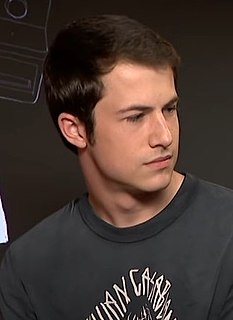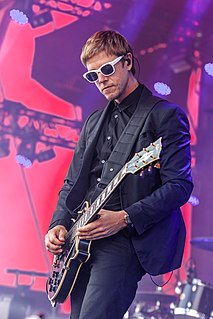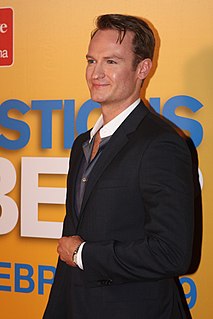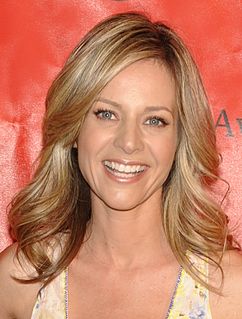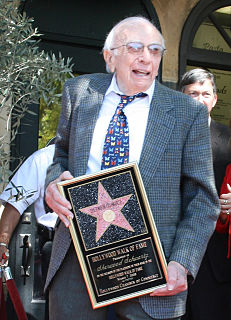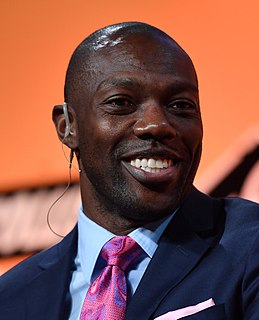A Quote by Ted Sarandos
I feel like if we can use the combination of basically data-driven hunches and bet on really first-class talent to deliver the shows, that I think we could do as well as the networks do, who basically have a 75 to 80 percent failure rate for new shows anyway - even after all that development and pilot work.
Related Quotes
Basically, if you want to have a computer system that could pass the Turing test, it as a machine is going to have to be able to self-reference and use its own experience and the sense data that it's taking in to basically create its own understanding of the world and use that as a reference point for all new sense data that's coming in to it.
I was going to say it's pretty bad these days, but I actually think it's pretty much the same as it's always been: There are a few really great shows on, and a bunch of garbage. That's the nature of the beast. It's always going to be that way as long as the networks try to second-guess what the American public will like. I wish that they'd just put on what they think is good rather than what they think people will sit through. I bet they'd have the same success rate, but at least the shows that survived would be better.
I knew about 'Haunting Hour' and that it was basically the new 'Goosebumps'. When I got offered the role of Corey, I was really excited because I basically felt like I was going to be in a new generation of 'Goosebumps'. It was a lot of fun, because I just love those scary shows, and I'm such a big fan of the horror genre.
Basically, every band that makes it has some dude with some sense of business. I don't know if our band would've been so successful were it not for Daniel's [Kessler] insight into how things really work. Daniel was the one who was diligently saying, "We should make a demo, send it out, play shows but not too many shows, get on shows with touring bands that are coming to New York."
Economists often talk about the 80/20 Principle, which is the idea that in any situation roughly 80 percent of the “work” will be done by 20 percent of the participants. In most societies, 20 percent of criminals commit 80 percent of crimes. Twenty percent of motorists cause 80 percent of all accidents. Twenty percent of beer drinkers drink 80 percent of all beer. When it comes to epidemics, though, this disproportionality becomes even more extreme: a tiny percentage of people do the majority of the work.
If I were to look back on my work, I think I accomplished probably about 70 to 75 percent of what I could have. Maybe 60 percent. Somewhere in that area; two-thirds of what I could have accomplished. If I had been a really dedicated person, and really worked hard, I think I could have accomplished more.
I read something in the paper that really confused me the other day. It said that 80 percent of the people in New York are minorities. Shouldn't you not call them minorities when they get to be 80 percent of the population? That's a very white attitude, don't you think? I mean, you could take a white guy to Africa and he'd be like 'Look at all the minorities around here! I'm the only majority.'
That just shows you their type of class and integrity. They claim to be first class and the best organization. It's an embarrassment and it shows the lack of class that they really have.....The Eagles would be undefeated right now with Green Bay's quarterback. We'd probably be in a much better position with him on the team (instead of present Eagles quarterback Donavon McNabb).
Millions of mutual-fund investors sleep well at night, serene in the belief that superior outcomes result from pooling funds with like-minded investors and engaging high-quality investment managers to provide professional insight. The conventional wisdom ends up hopelessly unwise, as evidence shows an overwhelming rate of failure by mutual funds to deliver on promises.
I think its going to be continually tougher on the big networks as more cable channels do really interesting television. The big networks have a choice to make: Do we try to be all things to all people and get the shows that will deliver 20 million viewers a week? Are we the McDonald's of television? Or are we going to try to be more specific?
I thought the first two seasons of America's Got Talent were good. I think this one is the best one by a mile because they - you see the difference this year, I think, with the crowd being effectively the fourth judge. But most importantly, I think that these shows have to have a relevance because if you're not finding stars at the back of these shows - whether it's Idol or Got Talent - they're a complete waste of time.



